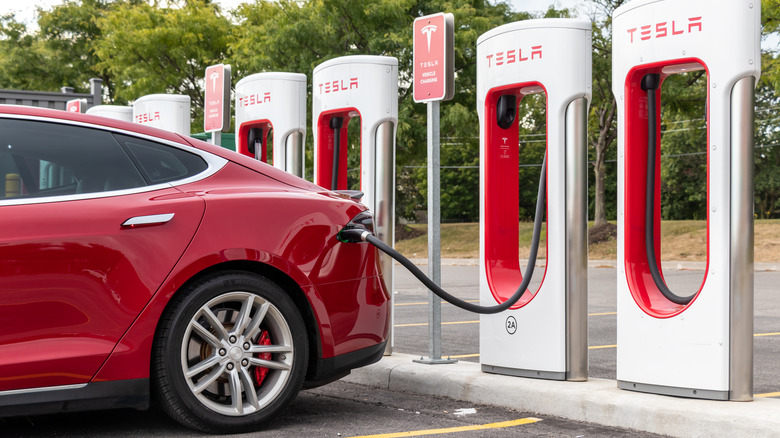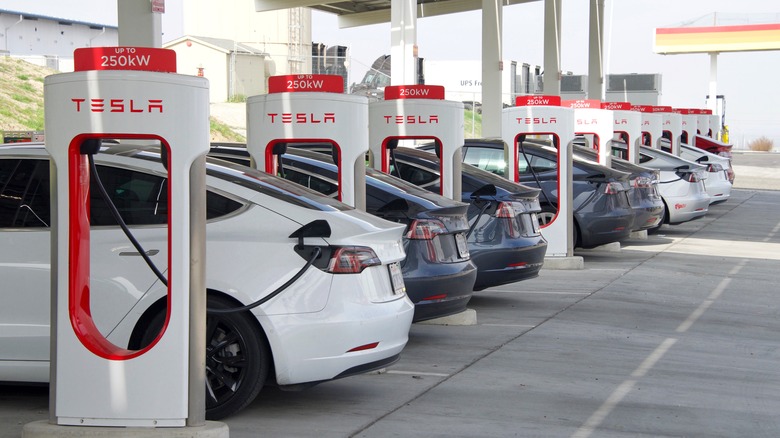The Roadmap For Tesla's NACS EV Plug Is Plaid-Fast
Electric Vehicles (EVs) sold across the U.S. could soon benefit from a unified charging standard called the North American Charging Standard (NACS), and recent reports by Electrek suggest that the standardization process will be expedited by a task force established by automotive group SAE International.
The NACS, formerly known as the Tesla charging connector, has garnered attention as the preferred charging standard for EVs sold in the U.S. Initially developed by Tesla as a proprietary standard, the company opened up NACS for other manufacturers in 2022. Following this decision, several prominent carmakers, including Ford, Rivian, General Motors, Polestar, and Volvo, embraced the NACS standard. With industry-wide support, a mandatory standardization process was the only remaining hurdle for NACS to become the default charging standard for EVs sold in the U.S.
Tesla has been collaborating with the U.S. Joint Office of Energy and Transportation and SAE International for the past few months to facilitate this process. In June 2023, the SAE confirmed its commitment to assisting with standardizing the NACS connector, marking a significant step towards establishing it as the default charging standard in the U.S.
With the SAE expediting the pace of NACS standardization, the process is anticipated to be completed by the end of 2023. Today's development ensures that the NACS standardization process will be accelerated, bringing convenience to EV manufacturers and consumers alike.
NACS likely to be renamed to J3400
When the NACS standard becomes official nationwide, it is expected to be officially renamed the J3400 by the SAE. This naming convention aligns with the SAE-standardized CCS chargers designated as J1772. Nevertheless, even after standardization, many people will likely call it the "Tesla Plug."
The task force responsible for overseeing the NACS standardization process is chaired by Dr. Rodney McGee from the University of Delaware. He asserts that the NACS standard surpasses the existing J1772 standard for AC charging, as it supports higher input voltages, enabling faster charging times and easier setup without requiring additional transformers. Dr. McGee also highlights Tesla's contributions during the standardization process, addressing concerns that NACS adoption may be perceived as protectionist by other countries, particularly the EU.
Given the typically lengthy standardization process, many are surprised by the accelerated pace of NACS standardization. One possible reason is that NACS is not an entirely new standard; it has been used for several years and is already being utilized by millions of Tesla users. With most of the technology-related challenges resolved by Tesla, the SAE's role primarily involves enabling wider adoption.
It will be interesting to see whether the SAE can adhere to the revised timelines for adopting NACS as the default EV charging standard in the U.S. and across North America.

